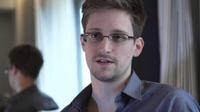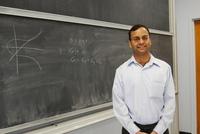-
Experts call for a new organization to oversee grid’s cybersecurity

In 2013, U.S. critical infrastructure companies reported about 260 cyberattacks on their facilities to the federal government. Of these attacks, 59 percent occurred in the energy sector. A new report proposes that energy companies should create an industry-led organization to deflect cyber threats to the electric grid. Modeled after the nuclear industry’s Institute of Nuclear Power Operations, the proposed organization, to be called the Institute for Electric Grid Cybersecurity, would oversee all the energy industry players that could compromise the electric grid if they came under a cyberattack.
-
-
NIST’s voluntary cybersecurity framework may be regarded as de facto mandatory
The National Institute of Standards and Technology’s (NIST) voluntary cybersecurity frameworkissued in February establishes best practices for companies that support critical infrastructure such as banking and energy. Experts now warn that recommendations included in the framework may be used by courts, regulators, and even consumers to hold institutions accountable for failures that could have been prevented if the cybersecurity framework had been fully implemented by the respective institution.
-
-
University of Texas at San Antonio ranked top U.S. cybersecurity school

The University of Texas at San Antonio (UTSA) ranks as the top school for cybersecurity courses and degree programs according to a Hewlett-Packard (HP)-sponsored surveyof 1,958 certified IT security professionals. The schools undergraduate and graduate programs received top marks for academic excellence and practical relevance.
-
-
CounterTack, developer of an end-point threat detection solution, closes out Series B funding at $15 million
CounterTack, a developer of real-time endpoint threat detection solutions, has closed out its Series B financing round with an additional $3 million to complete a $15 million raised. With this extension, the Venture Capital unit of Siemens (SFS VC) joins CounterTack investors including Goldman Sachs, Fairhaven Capital, and a group of private financiers to fund an accelerated technology expansion and market delivery of CounterTack’s Sentinel platform.
-
-
Collegiate cyber defense competition advances to regional finals
Seven members of the University of Maine Cyber Defense Team will compete at the annual Northeast Collegiate Cyber Defense Competition at the University of New Hampshire in March. The team was one of nine out of a pool of fourteen schools that qualified for the regional competition. The competition simulates security operations for a small company. Teams must quickly familiarize themselves with network systems and software before beginning to defend against attacks while also providing customer service to users.
-
-
Latest cybersecurity threat: WiFi virus
Researchers have shown for the first time that WiFi networks can be infected with a virus that can move through densely populated areas as efficiently as the common cold spreads between humans. The team designed and simulated an attack by a virus and found that not only could it spread quickly between homes and businesses, but it was able to avoid detection and identify the points at which WiFi access is least protected by encryption and passwords.
-
-
Facebook-WhatsApp deal raises security concerns
Facebook’s acquisition of WhatsApp made headlines for its sheer size — $4 billion in cash and $15 in Facebook stock, for a total of about $19 billion – but security experts are worried about the security aspects of the deal. Even security specialists advising WhatApp’s customers not to panic about the deal, use language which is not exactly reassuring. Serge Malenkovich of Kaspersky Labs says: “There are no new [emphasis in original] reasons to worry about messaging privacy. Honestly speaking, WhatsApp was never meant to be a true confidential messaging tool; there were even multiple breaches in the past, including some attacks, which make eavesdropping possible.”
-
-
Skeptics doubt voluntary Cybersecurity Framework will achieve its goal
The Framework for Improving Critical Infrastructure Cybersecurity, developedby NIST following Executive Order 13636to promote cybersecurity, has been received with both support and skepticism from critical infrastructure industries. The 41-page document, put together by industry and government experts, offers guidelines on cybersecurity standards and best practices to critical infrastructure firms. It says its role is to be a complement to industries’ existing risk management practices.Skepticssay that without incentives, legislation, or enforcement, the guidelines will not be adopted.”The marketplace will punish any company that implements anything that could be considered excessive security, because it will increase their costs,” says an industry insider.
-
-
Snowden stole co-worker’s password to gain access to secret databanks: NSA

One reason National Security Agency (NSA) former analyst Edward Snowden was able to gain such broad access to a wide variety of agency’s secret documents was that he copied a password from a co-worker who has since resigned. After Snowden was denied access to NSANet, the agency’s computer network which connects into many of the agency’s classified databases, he persuaded a co-worker, an NSA civilian employee, to use his – the co-worker’s — Public Key Infrastructure (PKI) certificate to gain access. The NSA told Congress Snowden used what the agency describes as “digital deception”: the civilian NSA employee entered his password on Snowden’s computer, not realizing that Snowden was able to capture the password, allowing him even greater access to classified information. Once he gained access to NSANet, Snowden released a “Web crawler” inside the system. The crawler automatically indexed the NSANet, and using the passwords Snowden held – one his, one or more those of co-workers – copied every document in its path.
-
-
Israeli defense company launches cybersecurity solutions section
In recent months the Israel Aerospace Industries (IAI) has increased its cyberdefense-related activities. Esti Peshin, director of the company’s cyber section and a veteran of the IDF’s hush-hush sigint Unit 8200, says IAI is now developing solutions for clients in Israel and abroad. “We’re a start-up, but with the backing of a company that earns $3.5 billion a year,” she said. Ultimately, she implied, these defensive measures can be turned into offensive capabilities. “Intelligence is a subset of attack,” Peshin said. “This is, first of all, a national mission.”
-
-
New cyber-attack model helps hackers time the next Stuxnet
Taking the enemy by surprise is usually a good idea. Surprise can only be achieved if you get the timing right — timing which, researchers argue, can be calculated using a mathematical model, at least in the case of cyber-wars. The researchers say that based on the stakes of the outcome, a cyberweapon must be used soon (if stakes are constant) or later (if the stakes are uneven). In other words, when the gain from a cyberattack is fixed and ramifications are low, it is best to attack as quickly as possible. When the gain is high or low and ramifications are high, it is best to be patient before attacking.
-
-
The “Mask": Kaspersky Lab discovers advanced global cyber-espionage operation
Kaspersky Lab’s security researchers have announced the discovery of the Mask (aka Careto), an advanced Spanish-language speaking threat actor that has been involved in global cyber-espionage operations since at least 2007. What makes the Mask special is the complexity of the toolset used by the attackers. This includes a sophisticated malware, a rootkit, a bootkit, Mac OS X and Linux versions, and possibly versions for Android and iOS (iPad/iPhone). The primary targets are government institutions, diplomatic offices and embassies, energy, oil, and gas companies, research organizations and activists. Victims of this targeted attack have been found in thirty-one countries around the world.
-
-
New software obfuscation system a cryptography game changer

A team of researchers has designed a system to encrypt software so that it only allows someone to use a program as intended while preventing any deciphering of the code behind it. This is known in computer science as “software obfuscation,” and it is the first time it has been accomplished. Previously developed techniques for obfuscation presented only a “speed bump,” forcing an attacker to spend some effort, perhaps a few days, trying to reverse-engineer the software. The new system puts up an “iron wall,” making it impossible for an adversary to reverse-engineer the software without solving mathematical problems that take hundreds of years to work out on today’s computers — a game-change in the field of cryptography.
-
-
Snowden’ leaks derailed important cybersecurity initiatives
Edward Snowden’s leaks created such a climate of distrust around the NSA that many important cybersecurity initiatives died, stalled, or became non-starters. Security experts say that this is a case of throwing the baby out with the bathwater, and that the result of these stalled cybersecurity initiatives is that the United States is now more vulnerable to cyberattacks on its infrastructure, and government agencies and American corporations more exposed to sensitive information being compromised and stolen. U.S. officials have found it more difficult to respond to cyberattacks from Russia, China, and elsewhere. “All the things [the NSA] wanted to do are now radioactive, even though they were good ideas,” says James Lewis, a cybersecurity expert at the Center for Strategic and International Studies(CSIS).
-
-
New state-of-the-art cybersecurity resource available to software developers
Cybercrime is booming; it is an estimated $100 billion industry in the United States and shows no signs of slowing down. Attackers have an arsenal of weapons at their disposal, including social engineering — or phishing — penetrating weak security protocols and exploiting software vulnerabilities that can serve as an “open window” into an organization’s IT environment. Closing those windows requires effective and accessible tools to identify and root out software vulnerabilities. Supported by a $23.4 million grant from DHS’s Science and Technology Directorate (S&T), the Software Assurance Marketplace, or SWAMP, provides a state-of-the-art facility that serves as an open resource for software developers, software assurance tool developers, and software researchers who wish to collaborate and improve software assurance activities in a safe, secure environment.
-
- All
- Regional
- Water
- Biometrics
- Borders/Immig
- Business
- Cybersecurity
- Detection
- Disasters
- Government
- Infrastructure
- International
- Public health
- Public Safety
- Communication interoperabillity
- Emergency services
- Emergency medical services
- Fire
- First response
- IEDs
- Law Enforcement
- Law Enforcement Technology
- Military technology
- Nonlethal weapons
- Nuclear weapons
- Personal protection equipment
- Police
- Notification /alert systems
- Situational awareness
- Weapons systems
- Sci-Tech
- Sector Reports
- Surveillance
- Transportation
Advertising & Marketing: advertise@newswirepubs.com
Editorial: editor@newswirepubs.com
General: info@newswirepubs.com
2010-2011 © News Wire Publications, LLC News Wire Publications, LLC
220 Old Country Road | Suite 200 | Mineola | New York | 11501
Permissions and Policies
Editorial: editor@newswirepubs.com
General: info@newswirepubs.com
2010-2011 © News Wire Publications, LLC News Wire Publications, LLC
220 Old Country Road | Suite 200 | Mineola | New York | 11501
Permissions and Policies
